Introduction
Order block is a market behavior that indicates order collection from financial institutions and banks. Prominent financial institutes and central banks drive the forex market. Therefore, traders must know what they are doing in the market. When the market builds the order block, it moves like a range where most of the investing decisions happen.
The market makes a sharp move towards both upside and downsize once the order building is completed. The key term of the order block trading strategy is that it includes what the institutional traders are doing. As they are the key price driver, any strategy that includes institutional trading might
What is the Order Block?
Financial institutes do not make a sudden investment in any trading instrument. They spend a lot of money on analysis to get the best trading result. Furthermore, they play with the money that is often impossible to arrange by retail traders.
Smart money makes several steps in their trading based on the availability of the price. For example, if a bank wants to buy $100M EURUSD, it will take trade-in three or four steps. In the first step, they will take $20M, in the second step, $50M, and in the third step $30M. The price usually makes a movement when the full quota of $100M completes.
Order block seems like a range, but every range is not an order block. Moreover, we don’t know when and where the smart money moves. Therefore, we will rely on the best location and price action to identify a suitable order block.
Besides the order block, we have to know what the order flow is. Once the price starts a movement from an order block, it provides an order flow towards any direction. Order flow from a higher timeframe indicates a market direction, and we have to find the order block towards the direction of it.
Order Block Trading Strategy
From the above section, we have seen what the institutional order block and order flow is. In this trading strategy, we will use 1 hour- 4 hours or the daily timeframe to enter the trade and weekly timeframe to identify the order flow. Furthermore, we will use the Fibonacci to identify the potential location from where the market is expected to move.
Timeframe
- One hour to 4 hours to identify the entry-level.
- Weekly timeframe to measure the order flow.
Currency Pair
The best part of this trading strategy is that it can provide profitable trades in all currency pairs. However, we have done extensive research and found that it works well in all major currency pairs, including EURUSD, GBPUSD, and USDJPY.
Identify the Order Flow
In the weekly timeframe, we will look for the price that tested an order block and moving higher or lower. Once it completes the test and starts the movement will find the direction.
In the image above, we can see that the price moved higher and came back sharply towards the order block with an impulsive bearish pressure but did not break the lowest. After the rejection candle, we will wait for the price to move higher with a candle close. Once the candle closes, we found our weekly order flow.
Later on, we will move to the H4 or daily timeframe and identify the order block to trade towards the direction of the order flow.
Location of the Order Block
Move to the H4 timeframe and draw the Fibonacci retracement from upside to downside. While you draw the Fibonacci level, make sure to draw from the last available price, not more than 200 candles. Furthermore, for a buy trade, draw the Fibonacci from the highest price to the lowest price.
After drawing the Fibonacci level, you should consider order blocks residing below the 50% Fibonacci retracement levels. Any price below the 50% Fibonacci retracement level is the discount price and any price above the 50% retracement level is the premium price.
In the bullish order block trading strategy, you should consider the discount price and, in a bearish order block trading strategy, consider the premium price only.
Entry
Wait for the price to break above or below the order block, win an impulsive bullish or bearish pressure. Later on, the price will make new highs or lows, but you should wait when it comes back to the order block. In most cases, the price will come back to the order block and test the 50% level before making the final movement.
Therefore, if you don’t want to monitor the price, you can take a pending order at a 50% level of the order block. However, the best practice is to enter the trade once it starts moving from the order block with a candle close above or below it.
Stop Loss and Take Profit Level
The stop loss level should be below or above the order block with some buffer. In most of the cases, use 10 or 15 pips buffer to avoid unexpected market behavior.
On the other hand, the ordinary take profit level would be towards the order flow with 1:1 risk: reward ratio. However, the final take profit level is Fibonacci 0%, which is usually the top of the available price in a bullish condition and the bottom of the price in a bearish condition.
Summary
Let’s summaries the order block trading strategy:
- Identify the weekly order flow and consider the direction.
- Identify the premium and discount zone level with the Fibonacci retracement levels.
- Move to H1 to H4 timeframe and find the order block within Fibonacci 50% to 100% levels.
- The price should move towards the order flow directly from the order block, but it should come down to test the order block again.
- Enter the trade as soon as the price rejects the order block with a reversal candlestick.
The order block trading strategy is profitable in most of the currency pairs. However, it is essential to keep in mind that the forex market is very uncertain. We, as a trader, anticipate the price, and that’s why we use stop loss. No trading strategy can assure a 100% profit. Although the Order block is a very profitable trading strategy, you should use appropriate trade management and money management rules to avoid unexpected market conditions.




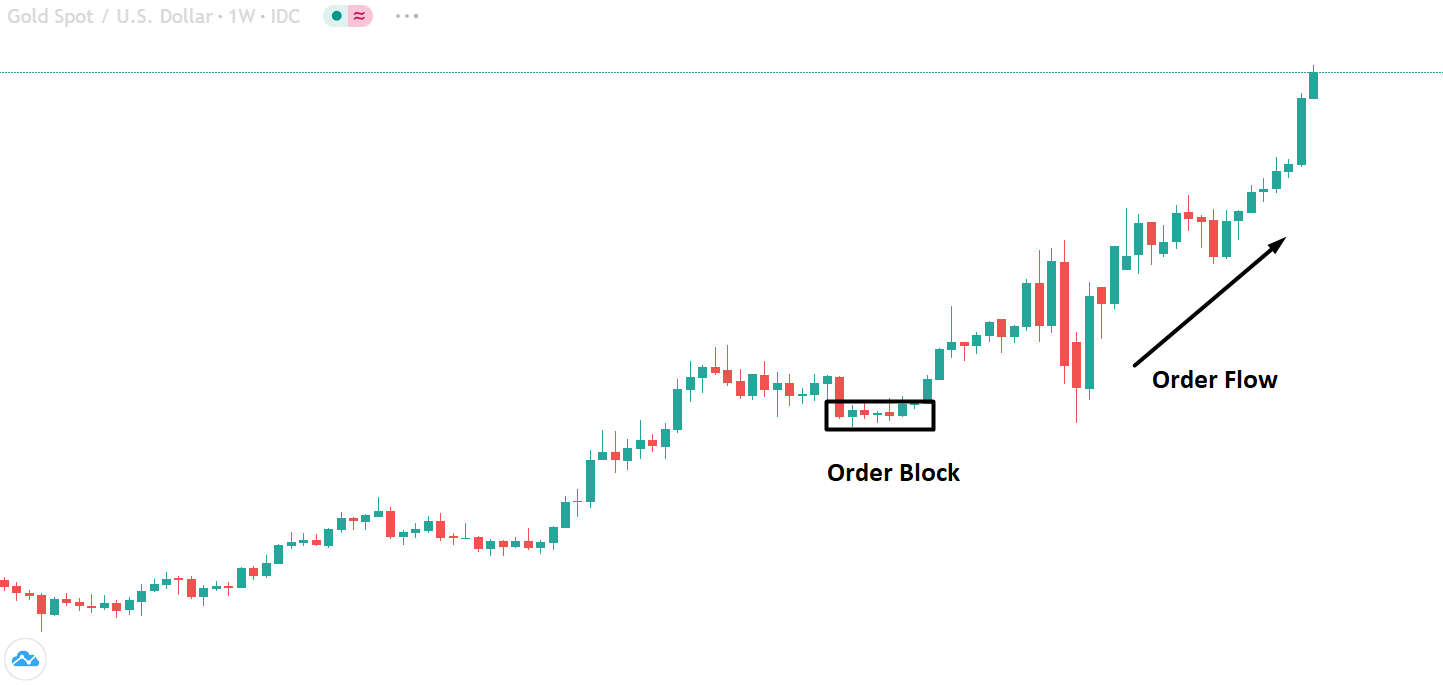

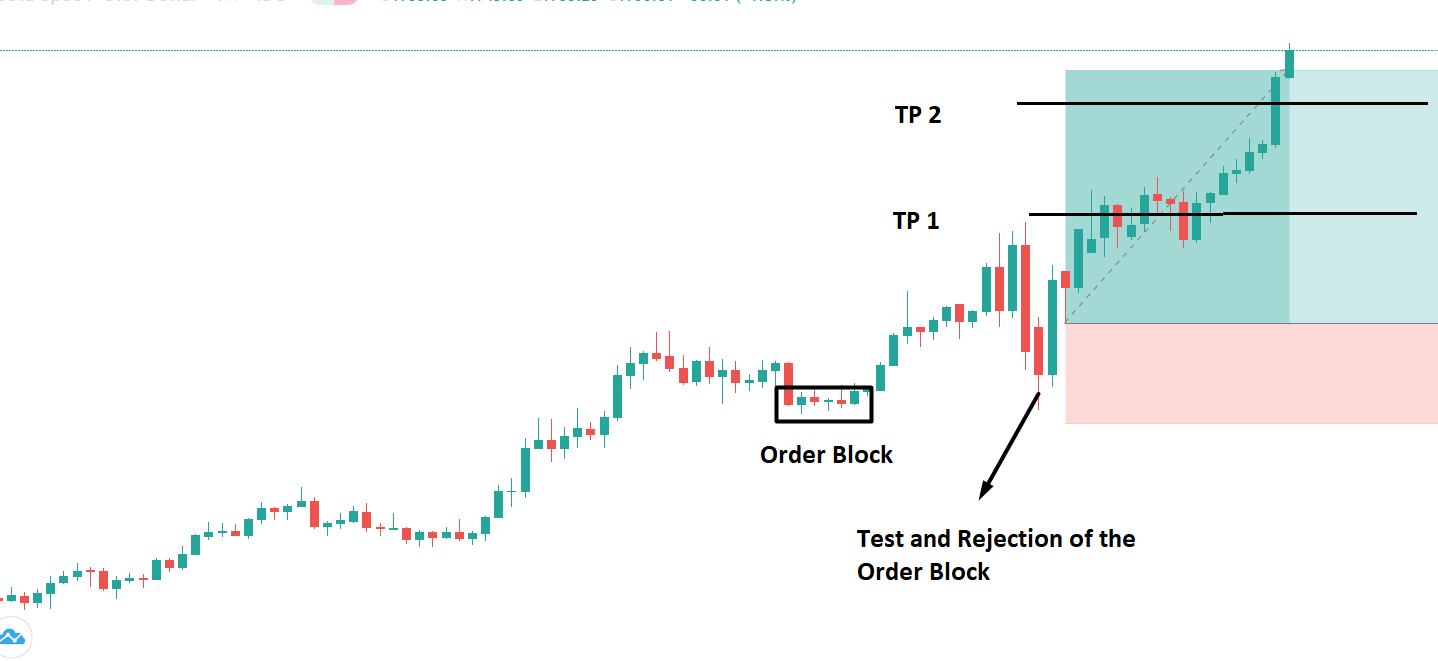
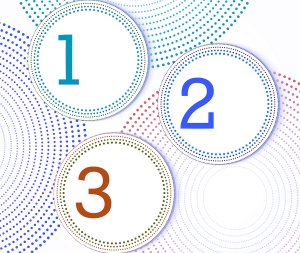
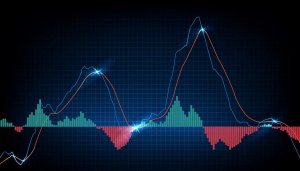
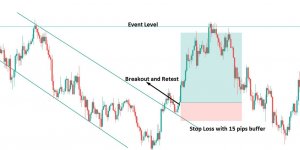
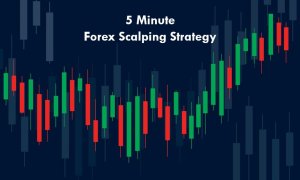
6 replies on “Learning To Trade The ‘Order Block’ Forex Strategy”
is this order block EA or Indicator available for MT4/5 ?
Cheers,
Hello brother, if there is an EA for MT4 that helps to place orders in the Order Blocks, I attached the link greetings!
https://www.mql5.com/es/market/product/57227
Very nice article keep it up
Am happy to join this this link to promote my challenges here.
Okay l understand u
hai bro, in the the above image the Fibonacci retracement you had drawn was extended to lower than the actual price , does one has to draw for this strategy?